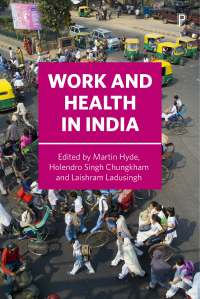
Anthony Lloyd
The latest round of employment figures were recently released by the Office for National Statistics (ONS, 2019). In it, the number of people in work reached a record high (32.54 million) between September – November 2018. Furthermore, average earnings increased by 3.3%, the number of vacancies increased, and unemployment is at its lowest level since the early 1970s. All cause for celebration.
Employment Minister Alok Sharma announced “Our pro-business policies have helped boost private sector employment by 3.8 million since 2010, and as the Resolution Foundation’s latest report shows, the ‘jobs-boom has helped some of the most disadvantaged groups find employment’, providing opportunities across society.” (BBC, 2019). Surely, reasons to be cheerful in these turbulent times? However, we need to ask a number of critical questions about the real state of UK labour markets and the realities (and harms) associated with “employment”.
First, how accurate is the Labour Force Survey? Our current fixation on low unemployment is a statistical construction easily rejected on closer inspection. This sample survey of 100,000 responses categorises employment as working over one hour a week, and unemployment as actively seeking work in the past four weeks and available to start in the next two weeks. From a low bar to one much higher. Second, what are the conditions within work? We clearly have no difficulty in creating jobs (or characterising forms of activity as ‘employment’) but it tells us nothing about the lived reality of (in)stability, (in)security, and experiences of work.
“We may have, statistically speaking, more people in jobs than any time in the last four decades, but there are problematic and harmful realities at play”
In my recent book, The Harms of Work: An Ultra-Realist Account of the Service Economy (Bristol University Press), I consider the reality of life in the insecure, flexible and low-paid service economy. I observe workplaces and interview employees engaged in retail, call centres, leisure, takeaways, bar work, delivery jobs and other forms of customer-facing roles. I examine the historical shifts in UK labour markets over recent decades to demonstrate a thorough neoliberal restructuring of working life, away from stability and security, towards competition, flexibility and profitability. I also utilise emerging theories within ultra-realist criminology and social harm to consider the more problematic aspects of this fundamental transformation. We may have, statistically speaking, more people in jobs than any time in the last four decades, but there are problematic and harmful realities at play in low-paid service work that are overlooked by positive employment figures.
These problems (and harms) include an absence of stability. Temporary, precarious forms of ‘non-standard’ work include zero-hour contracts and the ‘gig economy’. Power and flexibility rest with employers, not employees, while workers struggle to plan for the week ahead, devoid of solid grounding upon which to build a life.
“Power and flexibility rest with employers, not employees, while workers struggle to plan for the week ahead, devoid of solid grounding upon which to build a life.”
There is also an absence of protection. Illegal practices such as non-payment of the mandated National Minimum Wage and unpaid ‘work trials’ exploit service economy employees. The absence of protection also extends to mental ill health as overworked, precarious and stressed employees struggle to get by yet often shoulder the responsibility personally; if only they worked harder, if only they were less ambitious or more realistic, things would not be so bad.
Finally, the absence of ethical responsibility for each other creates problems and harms. Management bullying, workplace cliques and the active exploitation or sabotage of colleagues pervades organisational cultures built on the neoliberal logic of competition, individualism, entitlement and display. Social relations within a competitive culture and competitive work environments increasingly reflect post-social arrangements and lead to harmful consequences.
I frame much of this behaviour and observation around a notion of ‘social harm’. That’s the prevention of recognition, positive rights and human flourishing caused by the intended and unintended consequences of the normal functioning of consumer capitalism. This system, following its own logic, reshapes organisations, cultures and subjectivities and generates a series of problematic and harmful consequences. Looking at the reality of contemporary working life and labour markets is vital; it’s no longer acceptable to continue celebrating the employment figures and the reduction in unemployment when the reality of the workplaces in which the majority of people are engaged produce such deleterious and damaging consequences.
![The harms of work [FC]](https://policypress.files.wordpress.com/2019/02/the-harms-of-work-fc.jpg?w=209&h=314) The Harms of Work by Anthony Lloyd is available on the Bristol University Press website. Order here for £64.00 or get the EPUB for £21.59.
The Harms of Work by Anthony Lloyd is available on the Bristol University Press website. Order here for £64.00 or get the EPUB for £21.59.
Find out more about impact, influence and engagement at Policy Press here.
Policy Press newsletter subscribers receive a 35% discount – sign up here. Please note that only one discount code can be used at a time.
The views and opinions expressed on this blog site are solely those of the original blog post authors and other contributors. These views and opinions do not necessarily represent those of the Policy Press and/or any/all contributors to this site.



